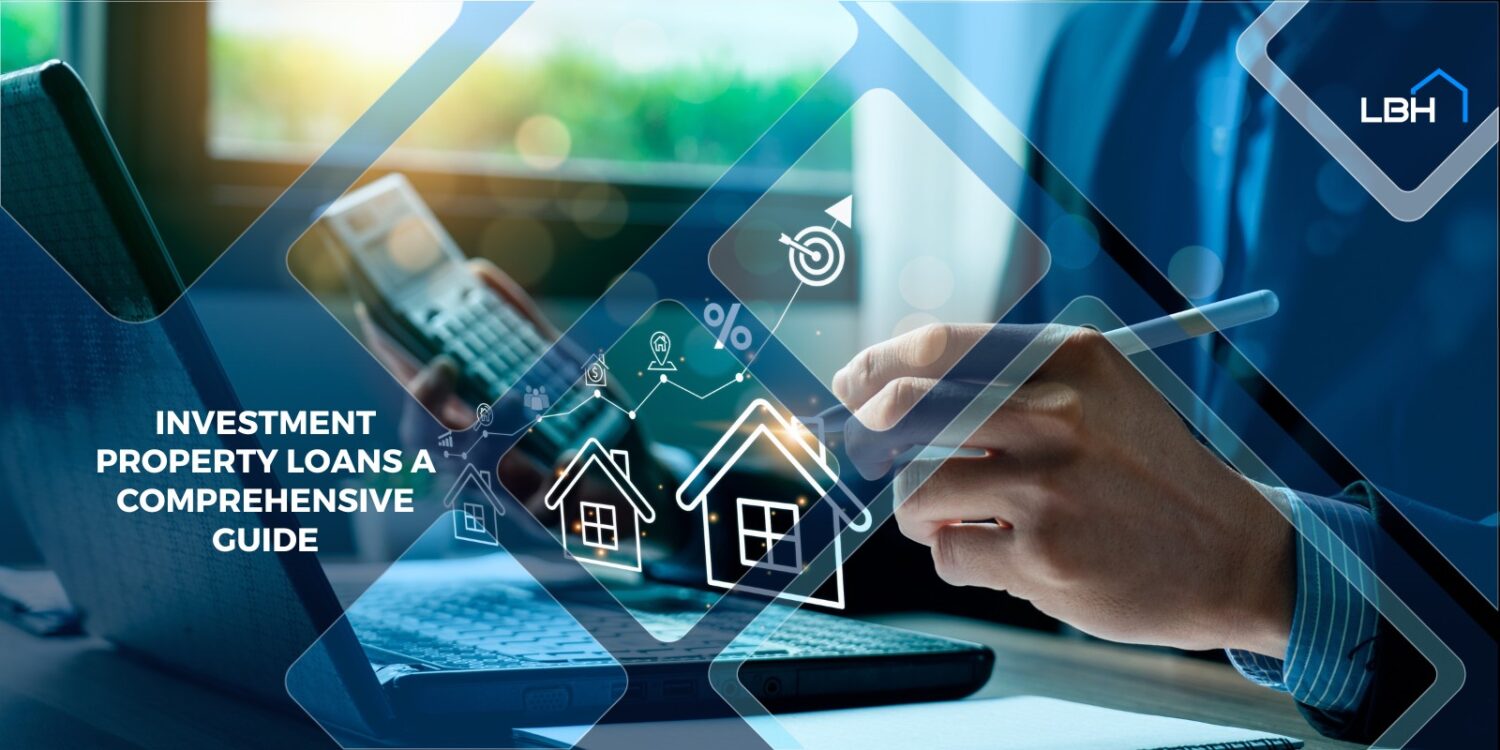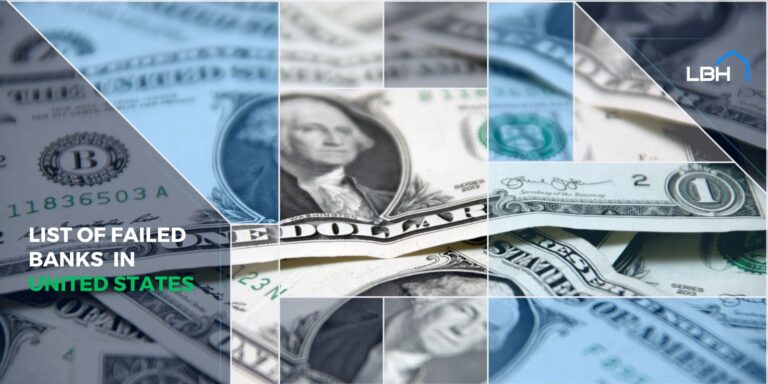If you want to earn more money by renting out a home or buying a fixer-upper to sell for a profit, you might need a special loan called an investment property loan.
However, these loans usually have higher interest rates than regular home loans, and the rules to qualify are tougher.
Understanding how these investment property loans work can help you pick the best investment property mortgage for your real estate plans. It’s important to know your options before diving into real estate investment properties.
What Is an Investment Property Loan?
An investment property loan is a type of mortgage used to buy a property for making money, not to live in. People use these loans to invest in properties they can rent out or sell later for a profit.
You can use these loans to buy different kinds of properties like apartments, houses, shops, or vacation homes. But compared to regular home loans, they often have stricter rules.
That means higher interest rates, needing more money upfront, and stringent requirements to qualify.
Lenders decide if you can get these loans by looking at how much money the property could make in rent, your credit history, and how the market is doing.
Like any investment, it’s important to think about both the risks and rewards before getting an investment property loan.
If you’re thinking of getting a loan for investment properties, there are different places you can go. Banks, credit unions, and online lenders all offer this loan type.
What kind of loan you’ll get might differ based on where you go. But the loan terms you qualify for mostly depend on your credit score, how much you earn, and details about the property itself.
Here are the main types of home loans you can check out for buying investment property:
- Conventional loans
- FHA loans
- VA loans
- Home equity loans
- Hard money loans
Are You Ready to Invest in Property?
Purchasing an investment property isn’t the same as buying your own home. To make sure you’re ready to invest, check if you meet these qualifications:
- Financial stability: Owning an investment property needs more financial stability, particularly if you aim to rent it out to tenants.
- Return on investment: In the current real estate market, many investors experience a positive cash flow from their investment properties. The smartest investors usually calculate the potential return on investment (ROI) before deciding to buy a property.
- Management: Before committing to buy an investment property, ensure you have enough time to maintain and keep an eye on the property regularly.
Criteria for Financial Stability and Readiness
Part of the readiness test is to ensure you have your finances in order. Investment properties demand a significant capital outlay, or you are likely to fall by the wayside and experience huge sinking costs.
Here are the major costs associated with investment properties that you need to be aware of before taking the plunge:
- Mortgage payments: Before opting for a mortgage to fund your investment property, ensure you can manage the monthly payments. Renting it out can cover these costs if the income aligns, but if it’s vacant or earns less, having savings to cover the difference is crucial to meet your mortgage payments.
- Down payment: Many lenders typically ask for a minimum 15% down payment for investment properties. The exact amount can vary based on your lender and the type of loan you get. For a conventional mortgage, expect to put down around 15% to 25%.
- Initial home purchase costs: Property owners aiming to rent out their investment properties need to get them inspected and approved by inspectors. Plan your budget wisely to cover initial expenses such as home inspections and closing costs when purchasing the property.
- Maintenance costs: As a landlord or property owner renting out your place, quick fixes for urgent problems like plumbing or HVAC can be pricey. Make sure your repairs meet local building codes by checking with the local government. It’s smart to allot extra money for both regular and unexpected repairs – it’s often more than you might anticipate.
- Tenant costs: Expenses for investment properties don’t start only when tenants move in or when you buy a property with tenants already there. You’ll also need to set aside funds for advertising the property and conducting credit and background checks on potential tenants. Good tenants are a boon, but challenging ones can cause significant expense hikes and trouble.
Investment Property Loan Options
Knowing where to obtain financing for buying investment property is a crucial step in your journey. Different types of loans have different eligibility criteria, so you need to establish where you fall.
We made things easier for you with the list below:
- Conventional loan: The conventional loan program stands as the only standard option allowing you to purchase an investment property without restrictions. Unlike government-backed mortgages, there’s no requirement to live in the property to qualify for this loan.
- FHA loans: With an FHA-backed mortgage, you can purchase a two- to four-unit home and qualify by renting out the other units, given that you live in one of them for a minimum of 12 months.
- VA loans: The VA multifamily loan program caters specifically to eligible military borrowers. It enables them to purchase a property with up to seven units, provided they reside in one of the units. These loans are backed by the U.S. Department of Veterans Affairs (VA) and come with no down payment requirement.
- Non-QM loans: For borrowers who don’t meet the criteria for the above programs, a non-qualified mortgage (non-QM) might be an option. This loan relies solely on the rental income from the property being purchased. However, these loans often require higher down payments and come with higher interest rates compared to regular loan programs.
- Owner financing: At times, sellers might agree to act as lenders, offering short-term financing for you to buy the home. This typically involves a substantial nonrefundable down payment. Some owner financing agreements include a balloon payment, requiring you to clear the entire loan balance within a specific timeframe, or else the owner regains ownership of the property.
- Home equity loan: If you own a home with considerable equity, you have options like a home equity loan or a home equity line of credit (HELOC). These allow you to borrow against your home’s equity while keeping your existing mortgage. A home equity loan provides a lump sum with a fixed rate, while a HELOC functions like a credit card, allowing you to use and repay it within a specific timeframe.
- Cash-out refinance: Cash-out refinancing involves taking out a mortgage for more than what you owe on your current mortgage, allowing you to receive the excess amount in cash. This cash can then be used, for instance, to buy an investment property.
- Hard money loans: These loans are popular among flipping investors. Lenders offering hard money loans expect quick repayment. But they often require a minimum 25% down payment and charge high rates and upfront points. Sometimes, there’s also a prepayment penalty involved.
Overview of Loan Types
Here are the major types of loans you can settle for your investment property mortgage needs:
- Conforming Loans
A conforming loan aligns with the dollar limits set by the Federal Housing Finance Agency (FHFA) and meets the funding criteria established by Freddie Mac and Fannie Mae.
Conforming loans often offer low interest rates, making them particularly beneficial for borrowers with excellent credit.
Conforming loans and conventional loans overlap, but they’re not identical. A conventional mortgage is a broader term encompassing loans from private lenders, differing from government-backed loans (like FHA or VA) or those backed by Fannie Mae or Freddie Mac.
While all conforming loans are conventional, not every conventional loan fits the criteria for conforming loans, regardless of the loan size.
- Jumbo Loans
A jumbo loan is a mortgage that surpasses the usual limit for traditional conforming loans set by entities like Fannie Mae and Freddie Mac. It’s designed for high-value properties such as luxury homes or those in upscale areas.
Since jumbo loans exceed standard guidelines, they lack government guarantees, making them riskier for borrowers compared to conforming mortgages.
Because jumbo loans involve more uncertainty, borrowers must showcase a solid, secure credit history and go through a more rigorous approval process if they’re thinking about getting one.
Even though these loans can be useful for those without significant savings, prospective borrowers still need to provide substantial income proof and an initial payment from their available cash assets.
- Government-Backed Loans
A government-backed mortgage is a home loan protected or guaranteed by a federal agency.
Eligibility for such a mortgage might involve support from entities like the Federal Housing Administration (under the US Department of Housing and Urban Development), the US Department of Agriculture, or the US Department of Veterans Affairs.
Government-backed loans aren’t obtained directly from government agencies. Instead, you apply for them through private mortgage lenders offering FHA, VA, or USDA loans.
If you default on a government-backed mortgage, the agency covers the lender’s losses.
When a lender provides a government-guaranteed mortgage, it’s akin to the lender getting insurance on your loan. This setup enables the lender to offer you better terms, like lower rates or more lenient credit requirements.
Alternative Financing Options
When traditional methods fall short, think outside the box and consider alternative financing options. Here are other ways of how to get an investment property loan:
- Peer-to-peer lending: Peer-to-peer lending is a method where investors connect with borrowers seeking financing for different needs. Typically, fees and interest rates tend to be low, varying based on the borrower’s creditworthiness.
- Fix-and-flip loans: Fix-and-flip loans are short-term, hard-money loans that often come with interest rates ranging from 12 to 18 percent. If you’re eyeing a property that you intend to renovate and sell within the next 12 to 18 months, considering a fix-and-flip could be worthwhile.
- Life insurance: A permanent life insurance policy provides convenient access to cash, which you can borrow against when buying a new home. This can enhance your appeal to lenders and potentially simplify the process of securing financing.
- Credit cards and personal loans: Credit cards or personal loans can serve as home improvement loans. These financing options are also easy ways to finance a portion of your home purchase. Some credit cards come with zero percent introductory offers, while personal loans may allow borrowing up to approximately $100,000.
- Margin loans: A margin loan is a credit line used to finance property acquisition, secured by a borrower’s investments. It is for short-term needs but carries risks like a margin call, where you need to add funds if the value drops, and increased losses if your investment portfolio loses value.
The Loan Application and Approval Process
After considering the various financing options, it’s now time to put pen to paper and do the actual application. The application and approval process for your investment loan depends on the type of loan and the lender.
Here is how a typical loan application and approval process goes:
- Review your credit score: Having a strong credit score matters for any loan, including investment property loans. Most lenders seek a score of at least 620. A higher score can secure better terms and rates.
- Set your budget: Before seeking an investment property loan, assess what you can realistically borrow. Factor in the down payment, monthly mortgage, taxes, insurance, maintenance, and potential rental income.
- Explore lender options: Research various lenders — banks, credit unions, and online lenders — to compare rates, fees, and terms, finding the best deal for your requirements.
- Collect necessary documents: Lenders will require your tax returns, bank statements, rental income history, and the property’s purchase agreement.
- Apply for the loan: After choosing a lender and gathering the required documents, proceed with the loan application. The lender can then review your application.
- Close the loan: If approved, complete the closing process by signing loan documents and settling closing costs.
Mortgage Requirements for Investment in Properties
Lenders perceive investment in properties as riskier compared to primary residence lending. Consequently, the qualifying criteria demand a demonstration of higher financial stability.
Key Requirements for Approval
Getting approved for an investment loan is typically more stringent than approval for your primary residence mortgage. For instance, lenders typically require proof of experience in managing rental property, which isn’t a requirement when applying for residence mortgages.
Here are key requirements distinct to investment property loans:
- Higher down payments
- Mortgage reserves
- Proof of rental income
- History of property management
- Higher credit score
Understanding Loan Rates and Special Rules
Most mortgage lenders may consider the money you earn from renting out property as your main income when you apply for a mortgage.
They’re focused on your financial stability and if you can consistently manage the monthly payments without risk.
Recognizing the diverse circumstances investors face when applying for a mortgage, lenders consider rental income as a crucial factor.
Not every investor fits the same financial mold when seeking financing, and lenders understand this. To a loan officer, rental income refers to the money earned from tenants who occupy a property owned by the investor.
Loan Rates and Qualifying Income
The mortgage amount approved based on your rental income depends on several factors, including:
- Landlord experience: The duration of your experience as a landlord.
- Property portfolio: The number of rental properties you own.
- Tax documentation: Your ability to substantiate your rental income through tax calculations.
Many lenders typically require evidence of rental income for a minimum of three years. It’s crucial that this income is verifiable through legitimate means, such as tax documents, rather than relying solely on bank statements or rental agreements.
Additionally, it’s essential to meet the specific minimum requirements and eligibility criteria set by the lender. The criteria can vary between different financial institutions.
Occasionally, lenders might also consider your capacity to repay the loan by reviewing the history of timely rental payments.
Investment Property Loan FAQs
Here are frequently asked questions about investment in properties:
How do I get the best mortgage rate for an investment property?
To lock in the most favorable mortgage rate for a rental property, focus on enhancing the factors that lenders consider for approval.
Boosting your credit score, reducing your debt-to-income ratio (DTI), or putting down a larger down payment on the property can improve your standing with lenders and potentially lead to a better mortgage rate.
Can I buy an investment property without a down payment?
Most lenders typically require a minimum down payment of around 15% or more for a mortgage.
Can I refinance a mortgage on an investment property?
Refinancing an investment property loan is an option. Investors often choose to refinance for several reasons, such as capitalizing on lower mortgage interest rates, altering loan terms to better suit their financial goals, or accessing the equity they’ve accumulated in the property.
Preparing for Investment
Take the following steps to understand how to buy an investment property:
- 1. Make a Down Payment
As mortgage insurance doesn’t extend to investment properties, you’ll be required to place a minimum of 20 percent down to obtain conventional financing.
Opting for a 25 percent down payment might open up opportunities for a more favorable interest rate. A larger initial payment signifies a more substantial commitment, making your investment more at risk if it doesn’t yield as expected.
Moreover, a larger down payment offers lenders added security against potential losses. In the event of investment underperformance, you’ll absorb the loss before the bank faces any financial impact related to the property.
- 2. Strengthen Your Borrowing Power
Multiple elements affect the terms of a loan for an investment property. Factors like your loan-to-value ratio and the specific rules of the lending institution play a role.
If your score falls below 740, it could lead to extra costs, even for the same interest rate.
In such cases, maintaining the same rate would require a fee ranging from a quarter of a point to two points. To put it in perspective, a point equals 1 percent of your mortgage loan.
For instance, on a $100,000 loan, a point would be $1,000. Therefore, it’s wise to review your credit score before closing a deal.
Moreover, lenders now consider having enough funds in your bank account to cover all your expenses, both personal and related to your investment, for at least six months as part of their evaluation process.
- 3. Think Local First
If your down payment isn’t substantial or if you’re facing special circumstances, opting for financing from a local bank might be a smarter choice compared to a big national bank.
Local banks often offer more flexibility and possess better insights into the local market. They’re also more inclined to invest within the community.
Another avenue worth exploring is mortgage brokers. They have access to a variety of loan options. However, it’s essential to conduct thorough research before finalizing your decision on which broker to work with.
- 4. Try Owner Financing
Back when bank loans were easily accessible, asking for owner financing often raised red flags for sellers regarding potential buyers.
However, in the current scenario with stricter credit requirements, seeking owner financing has become more acceptable.
If you opt for this route, it’s crucial to have a solid game plan in place. This demonstrates to the seller your commitment to the transaction and assures them that you’re prepared to make a concrete deal based on the practical assumptions you’ve laid out.
- 5. Leverage Primary Residence Equity
Having substantial equity in your primary residence or other investment property can serve as a valuable financing resource.
One method to leverage this equity is through a home equity loan. These loans offer the benefit of being secured by your home’s equity, resulting in comparatively lower interest rates.
Additionally, repayment periods for these loans can extend up to 30 years, offering flexibility. If you have strong credit profiles, you might even access further reduced interest rates, making this an attractive option.
Move With Caution and Reap Your Rewards
Before buying an investment property, it’s crucial to assess your financial stability and the potential profitability of the property. Consider whether you can handle property management yourself or if hiring a professional is necessary.
Take time to evaluate the housing market, property taxes, and other associated expenses of managing a rental property.
Once you’re set on purchasing, the next step is to sort out the financing step. Begin the mortgage application process to secure funding for your first investment property.
While the initial upfront costs can be significant, it’s equally essential to factor in the long-term expenses of property ownership.
Beyond mortgage payments, think about ongoing maintenance, repairs, property taxes, and insurance. These elements will significantly impact your rental profits, so it’s wise to consider the broader financial picture before making a purchase.













